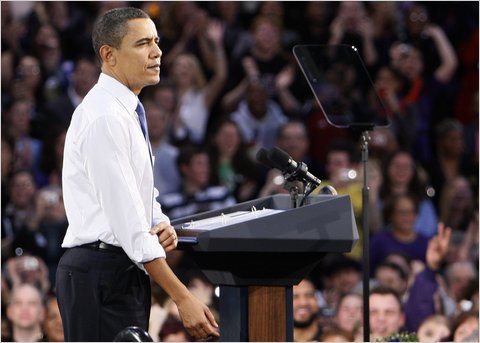
In a back-to-school speech in Philadelphia a few days ago, President Barack Obama urged(敦促) students to study hard, even at subjects in which they don't think they can excel(擅长).
"But just because you are not the best at something today doesn’t mean you can’t be tomorrow. Even if you don't think of yourself as a math person or a science person, you can still excel in those subjects if you're willing to make the effort. And you may find out you have talents you never dreamed of."
Those words are echoed(回响) in the National Science Board report: Preparing the Next Generation of STEM Innovators: Identifying and Developing Our Nation's Human Capital. The study explores ways to promote so-called "STEM" careers, the acronym(首字母缩写词) for science, technology, engineering(工程学) and mathematics.
Camilla Benbow is dean of education(学监) at Vanderbilt University and co-author of the report. She says finding and nurturing tomorrow's innovators(革新者) is essential to(对……必要的) keeping the country competitive in an ideas-driven global economy. The nation's brightest students, she adds, have been too often overlooked(忽视) in an attempt to raise math and science achievement overall.
Benbow disagrees with the popular notion(观念) that students are either academically gifted or they are not. She says it’s possible to promote more innovative(革新的) thinking in a general student population, but it is a process that requires a lot of hard work.
Benbow says schools must be held accountable for the progress of all students. That doesn't necessarily mean more funding, she says, but rather, better coordination(协调) of existing resources and flexibility for top students to move across the curriculum(总课程) at their own pace.
"Because otherwise they are bored. These kids are advanced. And if they don't have a chance to play with advanced curricula and be learning at the levels at which they are functioning, then they lose that spark(火花), inspiration(灵感) and passion."
Benbow says turning the National Science Board's recommendations into reality is going to require hard work and political will - and a recognition that the country's future depends on it.
That's a point President Obama stressed in his speech to the students in Philadelphia.
"The further you go in school, the further you go in life. And at a time when other countries are competing with us like never before, when students around the world in Beijing, China or Bangalore, India, are working harder than ever, and doing better than ever, your success in school is not just going to determine your success. It's going to determine America's success in the 21st century."
相关跟读练习:

